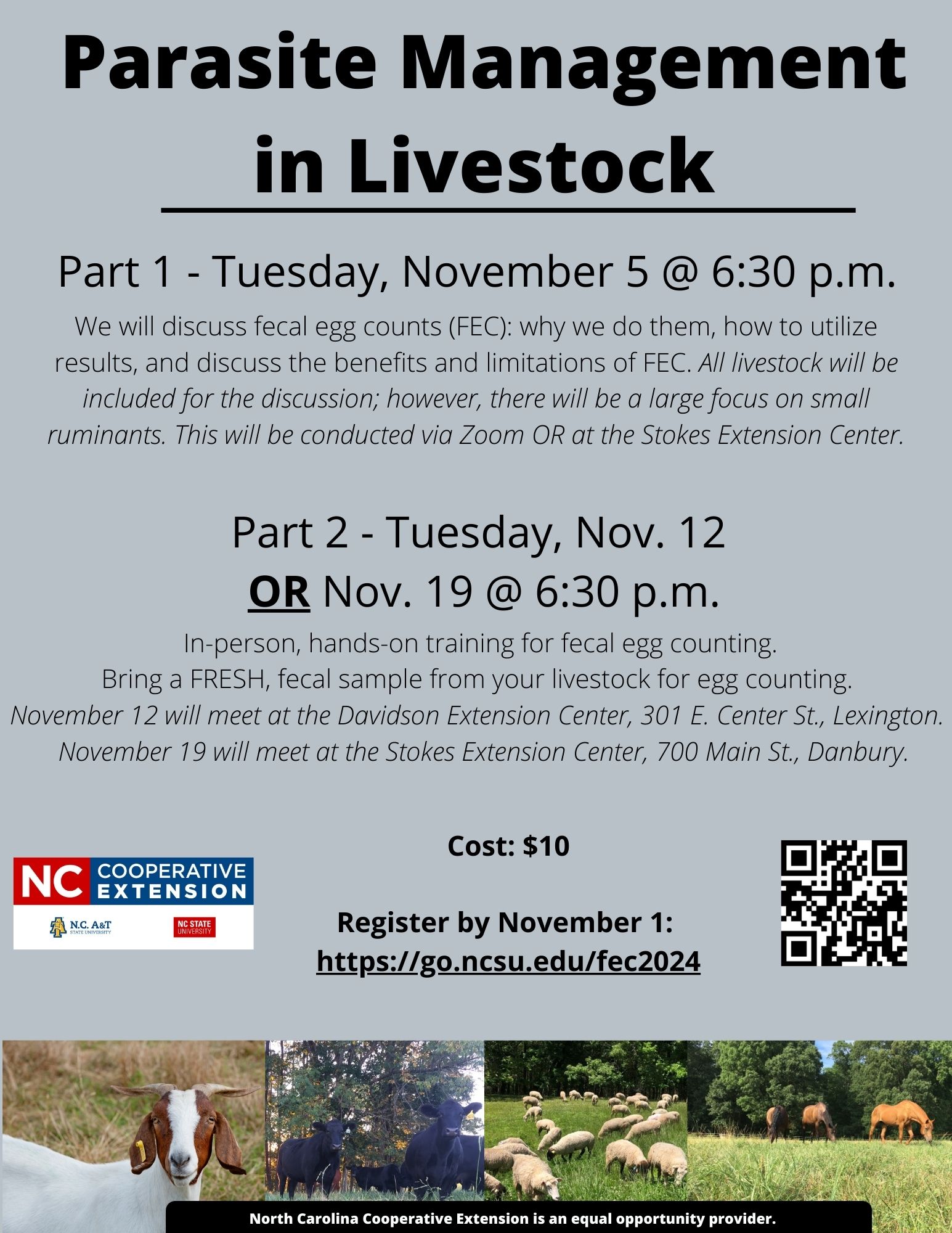How to Reduce Internal Parasites in Livestock / When to Deworm
go.ncsu.edu/readext?1021484
en Español / em Português
El inglés es el idioma de control de esta página. En la medida en que haya algún conflicto entre la traducción al inglés y la traducción, el inglés prevalece.
Al hacer clic en el enlace de traducción se activa un servicio de traducción gratuito para convertir la página al español. Al igual que con cualquier traducción por Internet, la conversión no es sensible al contexto y puede que no traduzca el texto en su significado original. NC State Extension no garantiza la exactitud del texto traducido. Por favor, tenga en cuenta que algunas aplicaciones y/o servicios pueden no funcionar como se espera cuando se traducen.
Português
Inglês é o idioma de controle desta página. Na medida que haja algum conflito entre o texto original em Inglês e a tradução, o Inglês prevalece.
Ao clicar no link de tradução, um serviço gratuito de tradução será ativado para converter a página para o Português. Como em qualquer tradução pela internet, a conversão não é sensivel ao contexto e pode não ocorrer a tradução para o significado orginal. O serviço de Extensão da Carolina do Norte (NC State Extension) não garante a exatidão do texto traduzido. Por favor, observe que algumas funções ou serviços podem não funcionar como esperado após a tradução.
English
English is the controlling language of this page. To the extent there is any conflict between the English text and the translation, English controls.
Clicking on the translation link activates a free translation service to convert the page to Spanish. As with any Internet translation, the conversion is not context-sensitive and may not translate the text to its original meaning. NC State Extension does not guarantee the accuracy of the translated text. Please note that some applications and/or services may not function as expected when translated.
Collapse ▲Do you have a problem with Internal Parasites (worms) in your livestock? Are your dewormers ineffective? Do you know when to deworm? Participate in two workshops to help you learn to be a better manager, know when to deworm (including the basics of FAMACHA), how to do a Fecal Egg Count test, and a Fecal Egg Count Reduction test to determine the efficacy of your dewormer. The first workshop will be held via Zoom on November 5 and then you may choose to take Part 2 in Lexington, NC on November 12 or in Danbury, NC on November 19.
Part 1 – Tuesday, November 5, 6:30 p.m. – Zoom – Register for Meeting – Once you register, you will get a confirmation email and can add it to your calendar.
Part 2A- Tuesday, November 12, 6:30 p.m. – N.C. Cooperative Extension, Davidson County Center, 301 E. Center St., Lexington. (The Extension Office is an old school building beside the CVS. Parking is on the back of the building. Once parked, come up the ramp and use the door on the right. We will be meeting in the auditorium.)
OR
Part 2B-Tuesday, November 19, 6:3 p.m. – N.C. Cooperative Extension, Stokes County Center Office, 700 Main Street, Danbury.
Register online. Space is limited. Payment is due by November 1 to complete your registration. Cost is $10/person. Please make checks payable to: Davidson County Livestock.
Please mail (or deliver your payment in person) to:
Davidson County Livestock
301 E. Center St.
Lexington, NC 27292
Contact April Bowman, awbowman@ncsu.edu, 336-593-8179 OR Sara Drake, sadrake@ncsu.edu, 336-242-2080 with questions.





